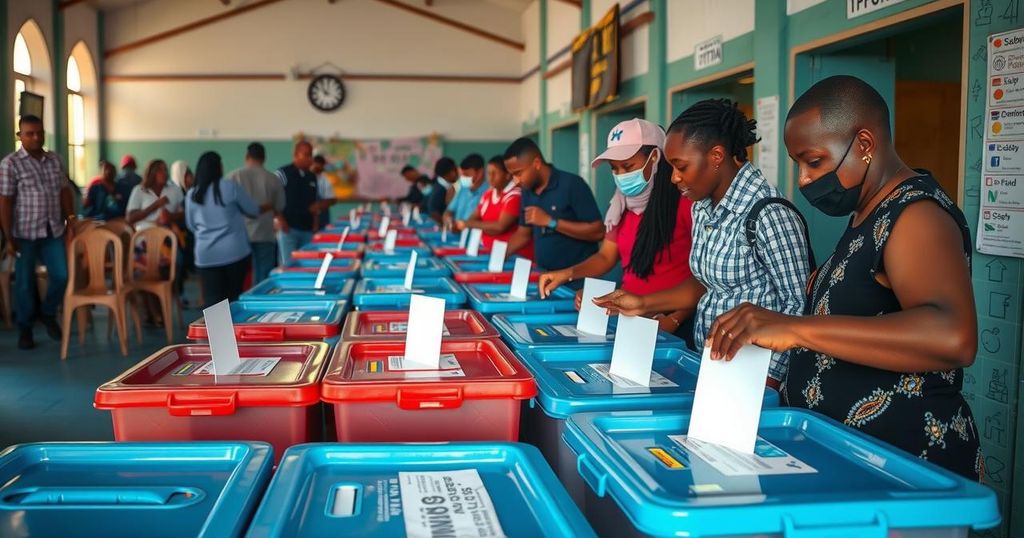Comoros Votes in Crucial Parliamentary Elections Amid Political Tensions

Comoros voters are electing a 33-seat parliament amid allegations of previous electoral irregularities. President Azali Assoumani, in power since 1999, faces criticism regarding authoritarianism and dynastic succession. Approximately 338,000 people are registered to vote, with significant participation from various political factions, though some opposition groups are calling for a boycott. Results are expected by Friday.
Voters in Comoros have gone to the polls to select members for the Indian Ocean nation’s 33-seat parliament, a significant political event following the controversial re-election of President Azali Assoumani last year, which opposition groups claim was plagued by extensive irregularities. The ruling party officials have refuted these allegations, asserting the integrity of the electoral process. Polling commenced early on Sunday, with approximately 338,000 registered voters. The last parliamentary election occurred in January 2020, and this time, nearly 100 candidates have been approved by the nation’s Supreme Court to participate in the election.
President Assoumani, who seized power in a coup in 1999 and has since secured three election victories, faces accusations from his opponents of authoritarian tendencies. There are growing concerns regarding his intentions to position his eldest son, Nour El-Fath, as his successor after the completion of his current term in 2029. In a notable development, Assoumani has bestowed significant authority upon his son, delegating responsibilities to coordinate government operations starting in 2024.
While some opposition factions, including Juwa, led by former President Ahmed Abdallah Sambi—who received a life sentence in 2022—have urged voters to boycott the elections, others have opposed this movement. Hamidou Karihila, representing the opposition Hope of the Comoros party, expressed, “The Azali regime is weakened … by participating in these elections we are contributing to further exposing the flaws in its system and accelerating its inevitable fall.” Election results are anticipated by Friday, presenting a critical juncture for Comoros as the country navigates its political future.
The political landscape in Comoros is characterized by a history of coups, authoritarian governance, and significant challenges surrounding electoral integrity. President Azali Assoumani, who first took power through a coup in 1999, has been a central figure in the country’s politics, winning subsequent elections amidst opposition accusations of irregularities. These elections are pivotal, as they come on the heels of Assoumani’s controversial re-election and amidst fears regarding the potential dynastic succession to his son. The backdrop of these parliamentary elections highlights the tensions between the ruling party and various opposition movements calling for reform. This election not only tests the political resolve of the electorate but also signifies the growing unrest regarding governance within the archipelago.
In conclusion, Comoros is currently witnessing a crucial parliamentary election marked by significant political tensions and allegations of electoral malpractices. President Azali Assoumani’s long-standing rule and the potential for dynastic succession have ignited heated debates among political factions. As voters head to the polls under these contested circumstances, the outcome will serve as a critical indicator of the country’s political stability and governance moving forward. The split in opposition strategies, particularly regarding participation in the election, underscores the complexities faced by Comoros’ political entities.
Original Source: www.moreechampion.com.au







